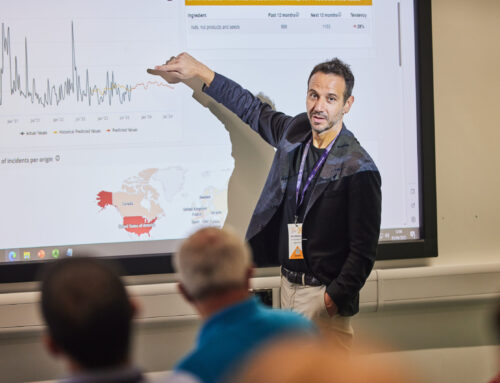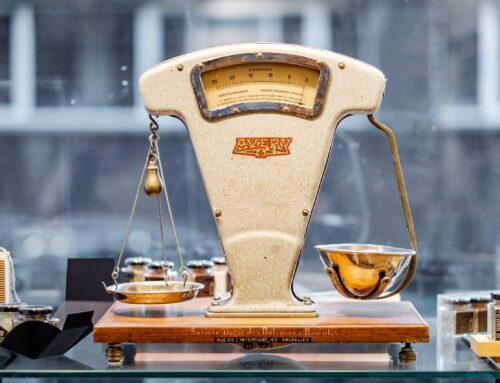There has been quite a discussion during the past few months on the way that the big data trend and evolution is going to change the sector that we work in. During 2013, our work that was very traditionally described as “agricultural knowledge management” and that sounded extremely uninteresting to several people, has suddenly become part of a hype. Some of the things that have served as catalysts include:
a) The decision that the G-8 Summit took in 2012, to commit to the New Alliance for Food Security and Nutrition, as the next phase of a shared commitment to achieving global food security. As part of this commitment, the G-8 leaders agreed to “share relevant agricultural data available from G-8 countries with African partners and convene an international conference on Open Data for Agriculture, to develop options for the establishment of a global platform to make reliable agricultural and related information available to African farmers, researchers and policymakers, taking into account existing agricultural data systems.”.
This event was the G-8 International Conference on Open Data for Agriculture that took place in April 2013 and which was an amazing gathering of people representing governments, companies, networks, and regions – all working on agricultural data services and applications. This event also resulted into a set of concrete Action Plans that the G-8 countries committed to put forward so that they further promote opening up, sharing and using agricultural data for research and production innovation. And in Agro-Know we saw with great pride the Action Plan of Europe to include two of our major projects: agINFRA and SemaGrow.
b) The launch of the Research Data Alliance (RDA) in March 2013; a global initiative that tries to accelerate international data-driven innovation and discovery by facilitating research data sharing and exchange, use and re-use, standards harmonization, and discoverability. RDA has been conceived as a bottom up network of all people working on different data topics, trying to cluster together initiatives and ideas so that alignment and collaboration takes place in a natural manner. Some major funding agencies like the European Commission have fully backed up the RDA, giving direct funding to its operation and facilitation – plus, some liaison meetings between the global players (see the post of Andreas on the EU delegation visit in Australia).
From the very beginning, the agricultural data community participated in the RDA activities – thanks to the ideas and energy of people like FAO’s Johannes Keizer, INRA’s Odile Hologne and Esther Dzalé Yeumo Kaboré, ISI’s Devika Madalli, and of course Agro-Know’s Vassilis. This led to the formulation of a generic Interest Group on Agricultural Data Interoperability that is hosting and facilitating specific Working Groups like the one on Wheat Data Interoperability. Esther, Devika and Johannes are describing the rationale and activities of this Interest Group in an excellent article in D-Lib on Opening Up and Linking Agricultural Research Data. And more things are to come from this Interest Group, since a new Working Group on Germplasm Data is under preparation (and with events like its recently organised e-Conference where Giannis talked about “How e-Infrastructures can contribute to Linked Germplasm Data” and Vassilis about “Major Germplasm Data Sources and Refaratories”).
c) The launch of the Global Open Data for Agriculture and Nutrition (GODAN) initiative that took place at the Open Government Partnership Summit of London in October. This initiative was initially set up through a collaboration by the USA and UK governments and has quickly attracted interest by several agri-food stakeholders, including some major international organisations (like the World Bank and FAO of the UN), networks (like the CGIAR consortium) and donors (like the Gates Foundation).
I was very pleased to hear that the first face-to-face meeting of the GODAN members is going to be co-located with the consultation meeting of the CIARD initiative: the umbrella network on Coherence in Information for Agricultural Research for Development that brings together organisations and people who want to make the outputs of agricultural research more accessible. This is one of the networks that we actively follow and contribute to, in collaboration with our good colleagues at the Global Forum on Agricultural Research (GFAR) and the FAO team facilitating the Agricultural Information Management Standards (AIMS) community. You can take a look at how agINFRA has helped in re-vamping and extending CIARD’s directory of information services and datasets in agriculture called the RING.
There are plenty of other things happening in our sector. The UK’s DEFRA has adopted an open strategy and is going to publish lots of agri-food and forestry data sets through the national open government data portal. The US Data Gov portal already indexes data sets and apps particularly developed for agriculture and nutrition. And the discussion has opened on how open data will change the future of the agri-food sector – take a look at the talks of a recent event at the Open Data Institute and particularly Christopher Brewster’s talk on “The potential impact of data integration and open data in the food supply chain”.
I would like to follow up this post with my personal reflections on a couple of further topics:
– How this emergence of open data sets and political support can help the creation of a new data-powered ecosystem of tech- and data-powered companies that will transform existing agri-food value chains.
– Whether we should expect a new profession of agricultural data scientists to be “invented” or “needed”.
– If and how the Linked Open Data (LOD) movement can help us evolve the current technology solutions for storing and managing data into a semantically represented, annotated and linked infrastructure – thus changing the way agri-food research and innovation is taking place.
Feel free to add a comment about the topic that you would like me to cover first. Additional views, opinions and strong positions are particularly welcome ?




